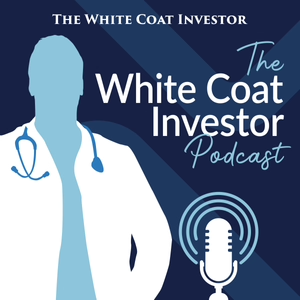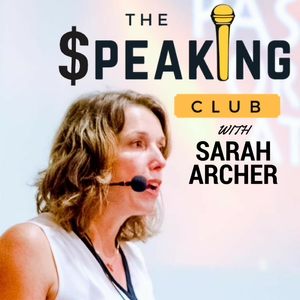
3. Surfacing the learning
04/30/24 • 14 min
Clinical placements form the basis of all health professions education programmes. Learners need to be prepared for these experiences, and their ideas, concerns and expectations explored.Clare and Tim talk about the usefulness of advanced organisers to enhance purposeful observation.They also discuss how learners observe us, their teachers at work, and how role modelling is a powerful tool for learning, and a major influence on career development.
Work-based Learning for Healthcare Professionals was commissioned by Cambridge and Peterborough NHS Foundation Trust as part of a wider, multiprofessional faculty development initiative. The series was developed and presented by the Swanwick Morris Partnership and produced by Tandem Productions. For further information email [email protected].
Hosted on Acast. See acast.com/privacy for more information.
Clinical placements form the basis of all health professions education programmes. Learners need to be prepared for these experiences, and their ideas, concerns and expectations explored.Clare and Tim talk about the usefulness of advanced organisers to enhance purposeful observation.They also discuss how learners observe us, their teachers at work, and how role modelling is a powerful tool for learning, and a major influence on career development.
Work-based Learning for Healthcare Professionals was commissioned by Cambridge and Peterborough NHS Foundation Trust as part of a wider, multiprofessional faculty development initiative. The series was developed and presented by the Swanwick Morris Partnership and produced by Tandem Productions. For further information email [email protected].
Hosted on Acast. See acast.com/privacy for more information.
Previous Episode

2. Structuring experience
A key task of the clinical teacher is to select experiences for learners, sequencing them appropriately with a gradual release of responsibility. Tim and Clare reveal how the workplace itself plays a part in this and is invitational to learners to a varying degree. Such experiential learning is at the heart of the clinical apprenticeship, which at its best is an expansive activity, extending beyond the direct interventions of teachers or supervisors.
Work-based Learning for Healthcare Professionals was commissioned by Cambridge and Peterborough NHS Foundation Trust as part of a wider, multiprofessional faculty development initiative. The series was developed and presented by the Swanwick Morris Partnership and produced by Tandem Productions. For further information email [email protected].
Hosted on Acast. See acast.com/privacy for more information.
Next Episode

4. Making the implicit explicit
Not all learning opportunities are immediately obvious as a lot of what goes on in healthcare - clinical reasoning, decision making, ethical considerations and so on - happens in our heads. Drawing on the concept of a cognitive apprenticeship, Tim and Clare explore a number of practical techniques for making our thinking as clinical teachers visible.
Work-based Learning for Healthcare Professionals was commissioned by Cambridge and Peterborough NHS Foundation Trust as part of a wider, multiprofessional faculty development initiative. The series was developed and presented by the Swanwick Morris Partnership and produced by Tandem Productions. For further information email [email protected].
Hosted on Acast. See acast.com/privacy for more information.
If you like this episode you’ll love
Episode Comments
Generate a badge
Get a badge for your website that links back to this episode
<a href="https://goodpods.com/podcasts/work-based-learning-for-healthcare-professionals-546731/3-surfacing-the-learning-70217300"> <img src="https://storage.googleapis.com/goodpods-images-bucket/badges/generic-badge-1.svg" alt="listen to 3. surfacing the learning on goodpods" style="width: 225px" /> </a>
Copy




